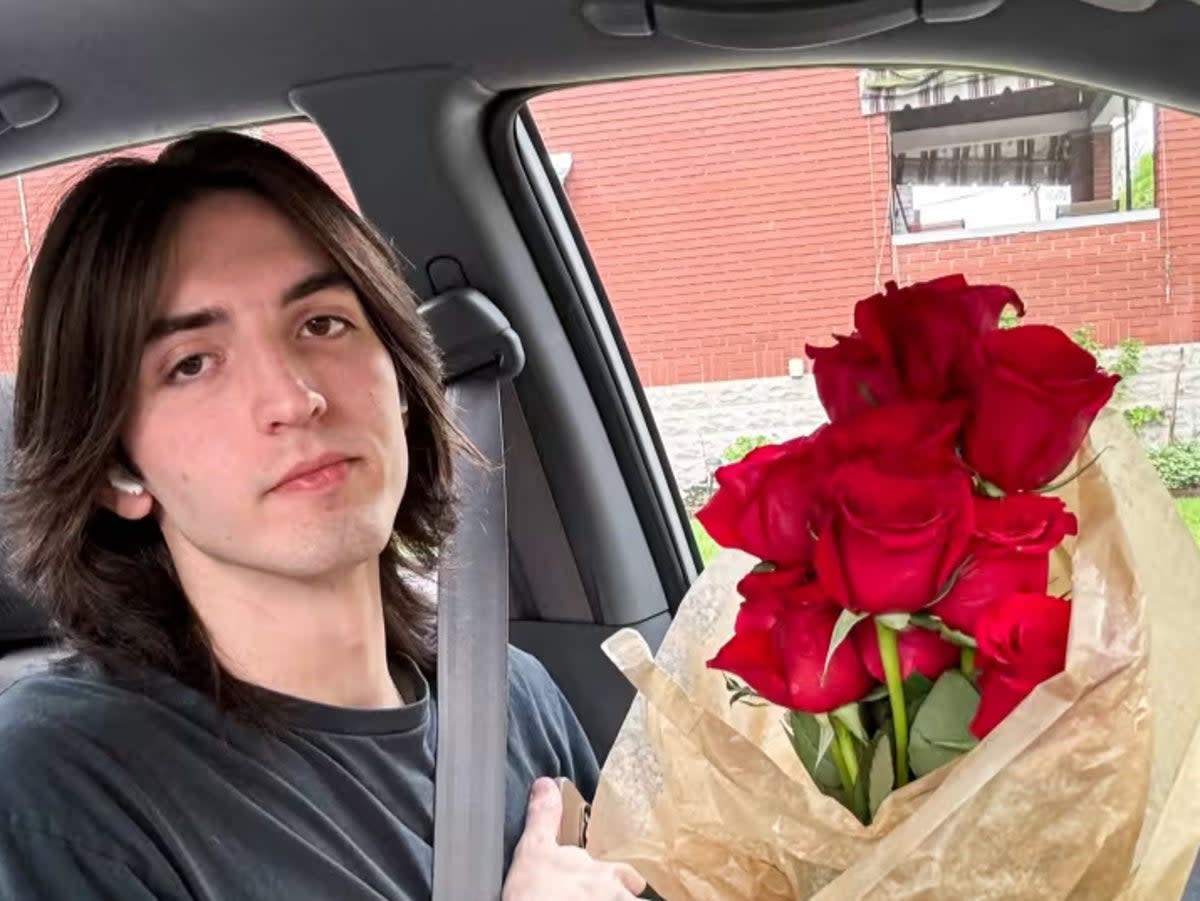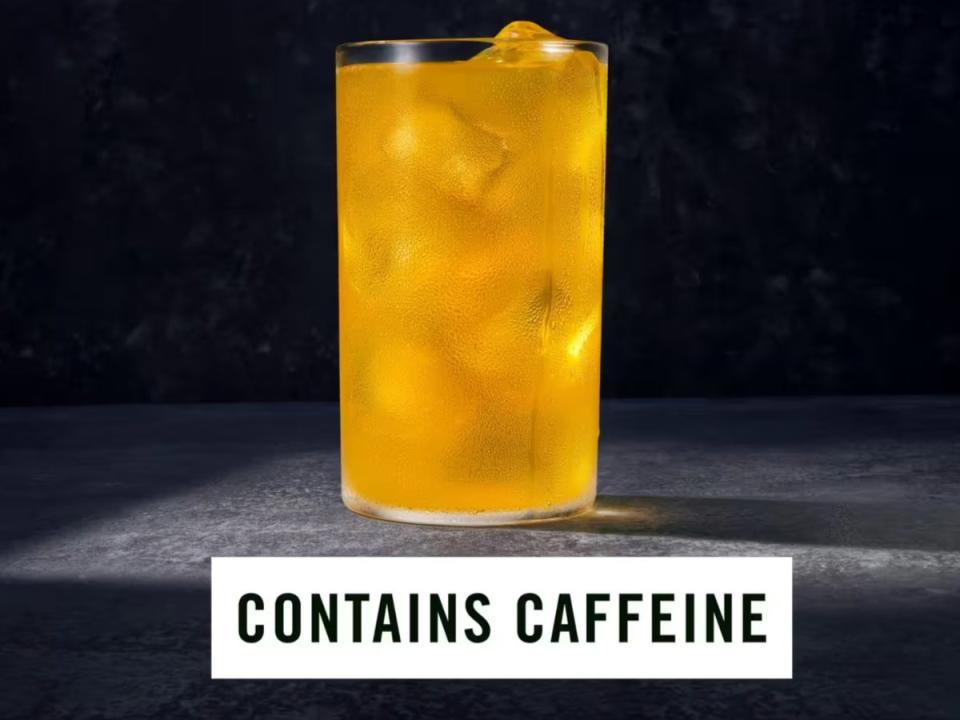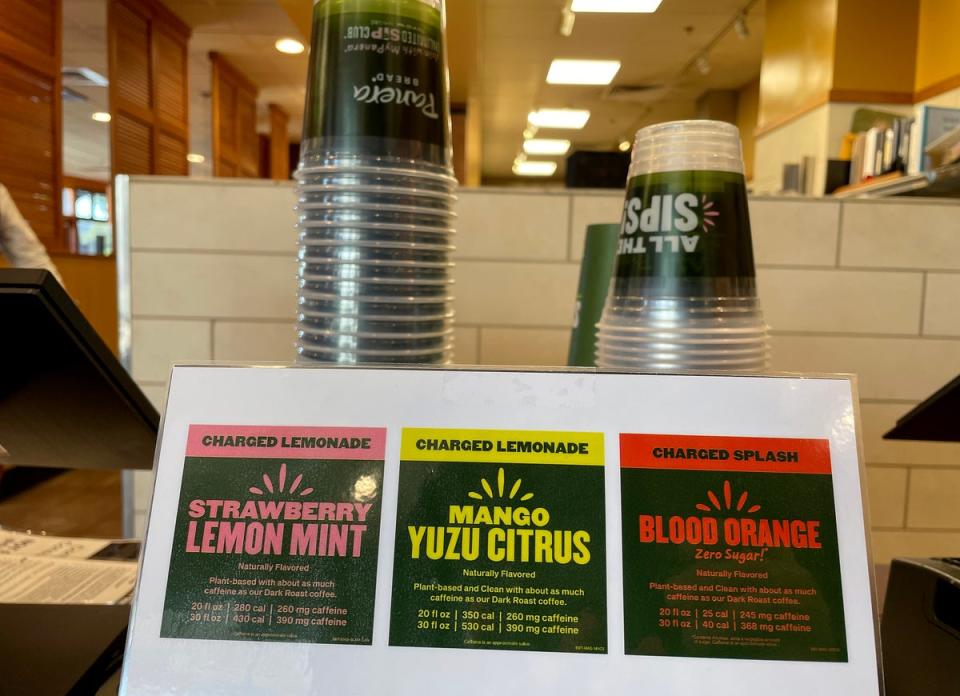Teen went into cardiac arrest after drinking Panera Bread’s Charged Lemonade, claims new lawsuit

Panera Bread has been hit with another lawsuit over its highly-caffeinated Charged Lemonade drink after a teen in Pennsylvania suffered a cardiac arrest after consuming the beverage.
Luke Adams, 18, is seeking damages, accusing Panera Bread of "negligence, carelessness, and recklessness" in the design, marketing, and promotion of the drink.
The lawsuit was filed on Monday, just under two weeks after the restaurant announced it would phase out its Charged Lemonade drinks as part of a broader menu update.
“We listened to more than 30,000 guests about what they wanted from Panera, and are focusing next on the broad array of beverages we know our guests desire — ranging from exciting, on-trend flavors, to low sugar and low-caffeine options,” a Panera spokesperson said on 7 May.
The latest filing is the fourth lawsuit brought against Panera Bread over alleged deaths and injuries caused by the drink.
Panera Bread has denied wrongdoing in the lawsuits. The Independent has reached out to the company for comment.

The filing alleges that Luke Adams, 18, purchased a large Charged Lemonade on 9 March in Monroeville, Pennsylvania. Later that evening, Mr Adams went to see a movie with friends. During the film, a friend said they heard Mr Adams making "unusual noises," and realised the teen was unresponsive, NBC News reports.
Two nurses and a cardiologist were at the theater watching the show and began performing CPR on Mr Adams. The teen has no prior health issues.
The responding health workers had to use an external defibrillator to help revive Mr Adams.
“He was about as close as you can come to being dead,” Dr Andrew Pogozelski, chief of cardiology at Allegheny Health Network’s Forbes Hospital in Monroeville, and one of the three who helped save Mr Adams' life, told NBC News.
“This was about as unlucky as you can get for this to happen to an 18-year-old, otherwise healthy person — but about as lucky as you can get for people in the movie theater to know what they were doing.”
The lawsuit claims that Mr Adams did not know that the "Charged Lemonade was a super energy drink" and that it contained "high amounts" of sugar and guarana.
Dr Pogozelski said he found no underlying health issues that would explain why the teen would have suffered a cardiac arrest. They implanted a subcutaneous defibrillator into Mr Adams that will shock his heart if he suffers any further life-threatening heart rhythm issues.

The teen suffered two seizures after he was rushed to the hospital, the lawsuit claims. Medical notes included in the filing said the seizures may have been related to a cardiac arrest caused by caffeine intake, and specifically named the Charged Lemonade.
The teen had to be intubated during his treatment, but he ultimately survived and told The Pittsburgh Post-Gazette that he felt "extremely lucky" to have survived.
Others who consumed the beverage were not so lucky.
In October, the family of Sarah Katz, a 21-year-old University of Pennsylvania student with a heart condition, filed a lawsuit claiming the woman died after consuming the beverage.
A second lawsuit was filed in December by the family of Dennis Brown of Florida. He had a chromosomal deficiency disorder and a developmental delay. He also died after drinking a Charged Lemonade, the lawsuit claimed.
Lauren Skerrit, a 28-year-old woman in Rhode Island, has also sued the company over the drink, saying it left her with "permanent cardiac injuries."
A large-size version of the drink has more caffeine — 390mg — than any size of dark roast coffee on the menu.

For comparison, a can of Coke has 34mg of caffeine, an 8.4 oz Red Bull energy drink contains 77mg of caffeine, and a 20oz Cafe Blend Dark Roast Coffee from Panera has 268mg of caffeine.
According to the US Food and Drug Administration, healthy adults can generally safely consume 400mg of caffeine a day.
Katz's friend, Victoria Rose Conroy, told NBC News that she probably had no idea the lemonade contained nearly an entire day's worth of caffeine when she ordered the drink. She said Katz was "vigilant" about what she consumed because of her heart condition.
“I guarantee if Sarah had known how much caffeine this was, she never would have touched it with a 10-foot pole,” Ms Conroy told the broadcaster.
A Panera spokesperson told NBC News that following Katz’s death, disclosures about the drink were added in every restaurant.
“We were saddened to learn this week about the tragic passing of Sarah Katz. While our investigation is ongoing, out of an abundance of caution, we have enhanced our existing caffeine disclosure for these beverages at our bakery-cafes, on our website and on the Panera app,” a Panera spokesperson said in 2023.
While the company has expressed sympathy for the deaths associated with the lawsuits, the company maintains that their "unfortunate passing was not caused by one of the company's products."
It said it stood by the safety of the drinks. It has not commented on the third lawsuit from Ms Skerrit.
A pair of Panera employees who spoke to NBC News on the condition of anonymity shared memos from their managers stating that the drink would be phased out over the next two weeks.
Mr Adams' mother, Lisa Feyes, who works as an emergency room nurse, said she was traumatised by nearly losing her young son.
“Every night when I go to bed, the whole thing replays in my mind,” she told NBC News. “It’s really hard for me to watch Luke walk out the door.”
She said she cried "tears of joy" when she heard the beverage was being discontinued.
Elizabeth Crawford, an attorney representing the plaintiffs in the lawsuits, praised the move as a "good step" for Panera.
“This is exactly what we set out to do, to some extent, is to make sure that this poison is taken off the shelves,” she told NBC News.
She said that while the move won't bring back the dead, it will "prevent this from happening to someone else".

 Yahoo News
Yahoo News 
